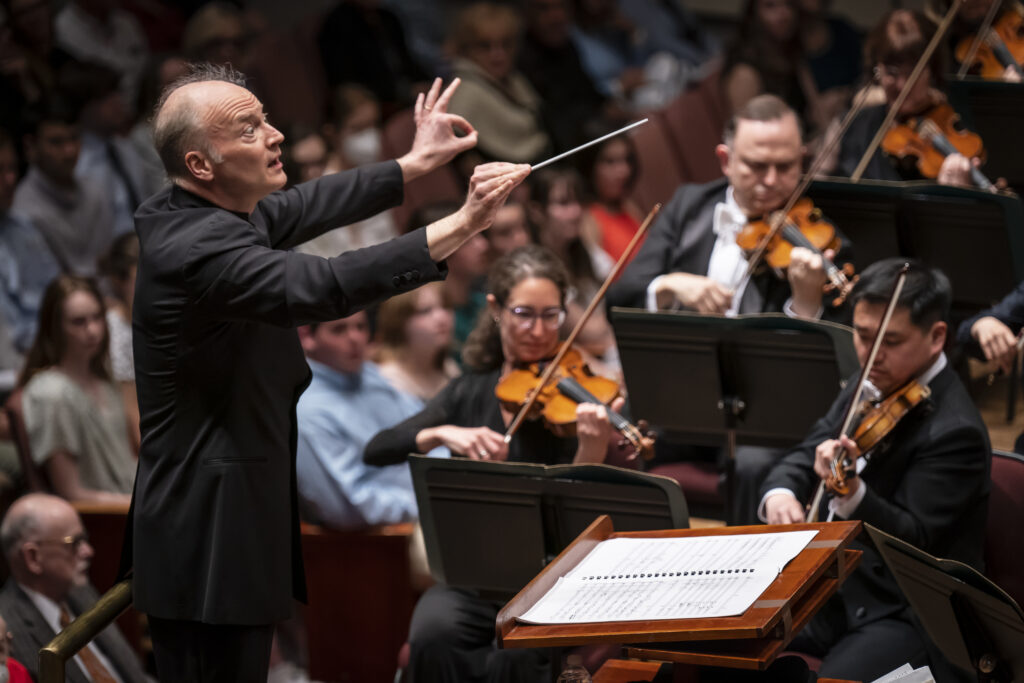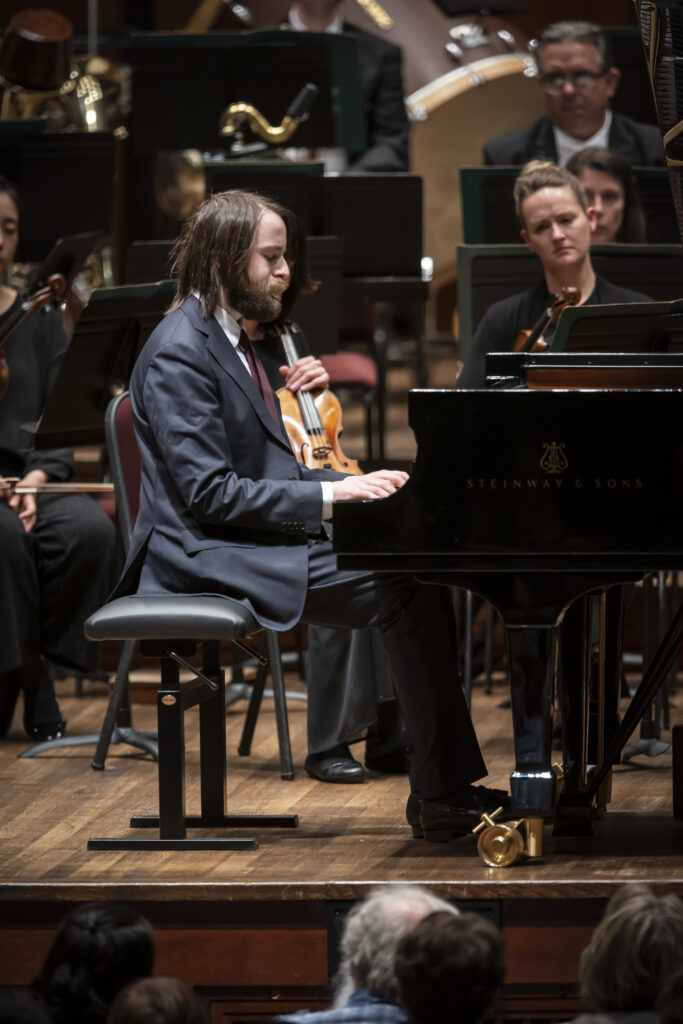Noseda, NSO and Trifonov preview thrilling program before taking it on the road

Gianandrea Noseda conducted the National Symphony Orchestra in music of Walker, Prokofiev and Stravinsky Thursday night at the Kennedy Center. Photo: Scott Suchman
The National Symphony Orchestra will return to Carnegie Hall on April 18, for the first time since 2019. Music director Gianandrea Noseda and the musicians have the chance to try out the program for that concert, two parts Russian and one part American, a couple times here in Washington.
The first performance, heard Thursday evening in the Kennedy Center Concert Hall, revealed dynamic interpretations of the two massive Russian works.
In the opening slot was the Sinfonia No. 4 of D.C. native George Walker, a work commissioned by the NSO, among other ensembles, in 2012, when the composer was 90. The NSO began a complete recording of Walker’s symphonies last year, to mark the centenary of his birth, and Noseda has interwoven these works into his complete Beethoven symphony cycle, which continues next month.
Walker subtitled this one-movement piece “Strands,” referring to the two spirituals (“There is a Balm in Gilead” and “Roll, Jordan, Roll”) whose melodies are woven into the work, almost imperceptibly. The outer sections feature broad washes of orchestral sound and heavy dissonance, which Noseda plowed through with considerable force, the impatient approach leading to occasional raggedness in sectional attacks.
Other motifs, including jagged repeated notes and syncopated dashes over a solid walking bass, provided relief from the somewhat strained clusters of knotted chords. Fragments of the titular melodic strands, as if run through a blender, gave the feel of the source material being completely submerged in a modernist texture, culminating in a blaring discordant chord.
The highlight of the evening was Prokofiev’s monumental Piano Concerto No. 2, in which soloist Daniil Trifonov brought out the subtlety of the score, almost eclipsing its titanic demands. He moved with delicate rubato through the smoky opening tune, which grew in sound as the first movement took off. The predominant feeling was melancholy, a reflection perhaps of Prokofiev’s dedication of the work to his conservatory friend Maximilian Schmidthof, who had shot himself in 1913.

Daniil Trifonov performed Prokofiev’s Piano Concerto No. 2 with the NSO Thursday night. Photo: Scott Suchman
In the massive cadenza, Trifonov took a slightly slower tempo, emphasizing clarity in the web of contrapuntal lines rather than speed and brutality. He expertly paced the crescendo at the end, reaching a symphonic volume himself, which the orchestra rose to meet with a thrilling sweep. Even greater virtuosity came in the spitfire Scherzo, with Trifonov’s crisply articulated sixteenth notes aligned beautifully with the orchestra’s melodic lines.
The processional music of the third movement plodded like a heavy-footed funeral march. Again what impressed most of all were the finely etched details of Trifonov’s pianism, in the poetic middle section and slinky glissandi in the lively dialogue with the tambourine. Having taken the first movement in a slightly more reserved tempo left the major fireworks for the Finale, where Trifonov’s hands flashed up and down the keyboard.
After the dark lullaby section, recalling the tune of the first movement, the second cadenza roiled intensely as the tempo accelerated, a crazy whirl taken up by the orchestra in a mad dash to the finish line. Countering the obsessive lamentation of this concerto was Trifonov’s expertly chosen encore, Myra Hess’s serene arrangement of Bach’s Jesu, Joy of Man’s Desiring, taken slowly and with carefully drawn voicings of the melody.
Noseda kept the oldest music of the evening, Stravinsky’s complete ballet score for The Firebird, for last. Much as Trifonov had done, Noseda went for subtlety, carefully scaling the dynamics toward the soft side, to bring out the music’s many mysterious effects. The music for the entrance of the Firebird, nervous twitters of piccolo and skittering of the three harps, was brilliant, if probably too fast were one actually accompanying dancers.
All of the instrumental solos stood out for praise, from the lush viola and plaintive bassoon to the spritely flute and elegiac French horn. The playful music for the thirteen princesses, as they tossed about the golden apples, romped delightfully, and the menaces of the evil Kashchei sped the orchestra into the infernal dance and the final triumph of the Firebird. It was, all in all, a precisely marshaled interpretation played to maximum dramatic effect, which should make a favorable impression during the orchestra’s visit to New York.
The program will be repeated 8 p.m. Friday and Saturday, with Trifonov playing Scriabin’s Piano Concerto instead of the Prokofiev on Friday. kennedy-center.org
